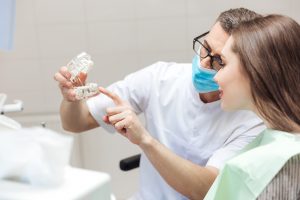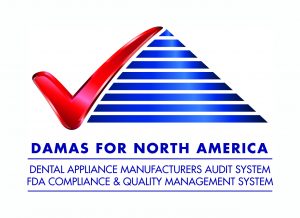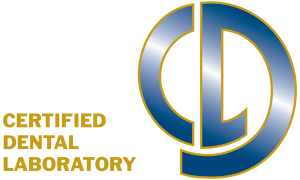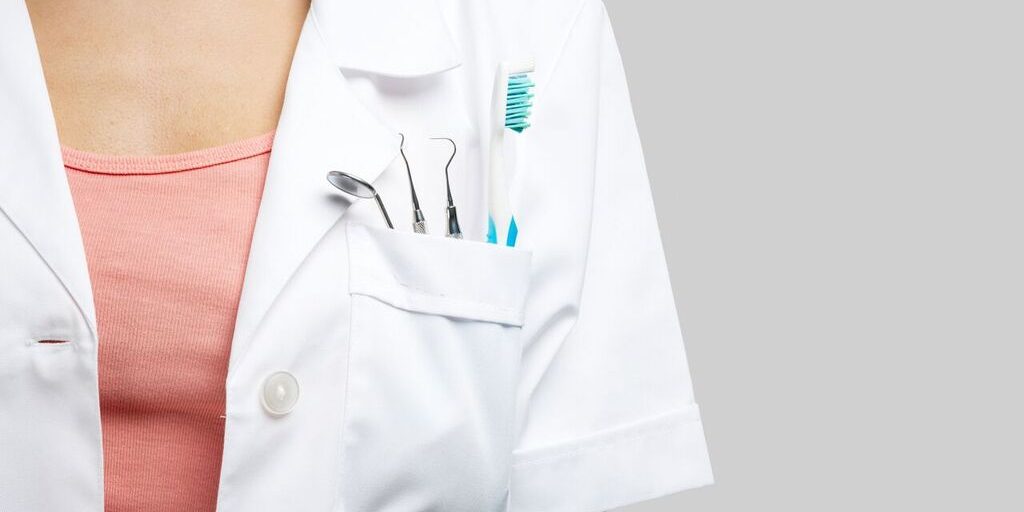What Do Patients Need to Know?
By: Bennett Napier, CAE
Dentistry from a health care perspective is regulated in two ways, but as it relates to patient interest, the primary focus in this blog will be on the state perspective, as this is where the practice of dentistry is regulated.
On the federal side, it’s important to note a couple of elements. The U.S. Food and Drug Administration regulates the process by which, materials and equipment used in the practice of dentistry, come to the market place.
In essence, companies that make materials and equipment used in dentistry, just like other areas in health care, have to put those products through a rigorous process related to “pre-market approval”, before products can be purchased and used by dentists and dental laboratories in fulfilling the need for dental patients for crowns, bridges, dentures, implants, veneers, sleep apnea devices and orthodontic appliances.
At the federal level, it’s important for dental patients to also be aware that a significant portion of restorative dental work is done outside the United States, and comes back into the market for use by U.S. dental patients. See  this April 2017 article by Bloomberg, https://www.bloomberg.com/news/articles/2017-04-21/your-imported-teeth-are-a-battlefield-as-trump-takes-on-trade that addresses this issue in some detail.
this April 2017 article by Bloomberg, https://www.bloomberg.com/news/articles/2017-04-21/your-imported-teeth-are-a-battlefield-as-trump-takes-on-trade that addresses this issue in some detail.
As shared above, the practice of dentistry, is covered under “Dental Practice Acts” within a specific state law.
Dental Practice Acts generally cover the licensure requirements and scope of practice for dentists, licensure requirements and scope of practice for dental hygienists; and regulation of others involved in the delivery of dental related services. These may include dental assistants, and in some states, there may also be specific regulations regarding dental laboratory technicians and/or dental laboratories.
Dental laboratory technicians and dental laboratories are mostly independent businesses apart from the dental practice, and they receive prescriptions (R/X’s) from licensed dentists to fulfill patient specific needs in restorative and cosmetic dentistry. However, it is not uncommon to find a dental laboratory technician(s) that work in house, as an employee for a dental practice.
Dentistry, is not unlike other parts of the health care system. There is a range of options in the marketplace for patients to choose from in terms of providers, and costs of care vary.
Dental care is either private pay for services, or aspects of the care may be covered by dental insurance. The major difference in dentistry, is dental insurance is more of a “reimbursement plan to cover up to a certain dollar amount”, and there is really not a program in the insurance market, that offers “full dollar for dollar insurance coverage reimbursement” like you would find in the medical side of health care.
Now that you know some of the background on how dentistry is regulated, what are some key things you need to know as a dental patient if you have a problem or are seeking dental treatment.

1. Verify the dentist you are working with or are considering is licensed to practice in your state. You can verify this with the State Board. See a listing here: http://www.ada.org/en/education-careers/licensure/licensure-dental-students/state-dental-boards.
2. See if your dentist works with a Certified Dental Laboratory, DAMAS certified laboratory, or Certified Dental Technician.
3. If you have a complaint against a dentist, most all state dental practice acts, have a formal complaint process for

patients. Again, you can find information on the complaint process in your state at this listing: http://www.ada.org/en/education-careers/licensure/licensure-dental-students/state-dental-boards.
4. Dentists are generally the only licensed professional that is legally authorized to deliver care to dental patients. In some states, dental hygienists can provide certain limited services directly to dental patients. Further, there a few states that have legalized denturism, where a licensed denturists can make or repair dentures direct for patients. That is in eleven of the fifty states.
 In all other instances, a dental patient cannot seek or receive services direct from a dental laboratory. Most dental practice acts have very clear standards, in this regard and in many states, a violation of the dental practice act can result in mandatory prison time for the individual performing dentistry illegally.
In all other instances, a dental patient cannot seek or receive services direct from a dental laboratory. Most dental practice acts have very clear standards, in this regard and in many states, a violation of the dental practice act can result in mandatory prison time for the individual performing dentistry illegally.
Given today’s focus on e-commerce, many consumers, look to the internet to find the best deals. Unfortunately, you can find mail order companies operating illegally offering the ability for patients do to “impressions” in home and send it back to receive products such as retainers, veneers, dentures, or night guards.
Buy at your own risk. In most cases, they are operating illegally, outside of the dental practice act. As a patient, you may not get a restoration that actually treats your needs, and it could create an even worse outcome. If something goes wrong, you likely will be on your own.
 Bennett Napier, MS, CAE, is a Certified Association Executive and serves as Executive Director of the NADL, NBC, and FDLT. Napier has been involved in the dental industry since 1994 having served as a Chief Staff Executive for state and national organizations in both dental hygiene and the dental laboratory industry. Prior to his career in association management, he worked in Washington DC, as a congressional assistant and policy analyst.
Bennett Napier, MS, CAE, is a Certified Association Executive and serves as Executive Director of the NADL, NBC, and FDLT. Napier has been involved in the dental industry since 1994 having served as a Chief Staff Executive for state and national organizations in both dental hygiene and the dental laboratory industry. Prior to his career in association management, he worked in Washington DC, as a congressional assistant and policy analyst.








I have had a lot of dental work done lately. I am grateful my dental services are well-backed up in their legality. Most people don’t think to look into their dental practice’s background, but your article shows how important it really is.
Of course, dental care is one of the most important things we should have focused on. Thanks for this amazing article! I will definitely share this with Dentist Redcliffe.
Thank you for the blog post! We often overlook preventative dental care as everyday people, but this article helps give us motivation. Have a nice day…
Dentcoat-wp
I am very amazed by the information of this blog and I am glad I had a look over the blog. thank you so much for sharing such great information.
I am inspired by your work and got some great ideas. Thanks and keep sharing 🙂
The system of health care has been changed very much. New technologies are being introduced. Along with that new facilities are being provided. It includes the dental insurance also. Thank you very much for providing this good post regarding the type of dental policies which we should adopt at our own risk.
Every dentist must work with the certified dental license so that their patients would trust their abilities. Also, having a dental lab business management means that you can have everything in place and all of your jobs are done within time.
I am so happy to get this post. This is a nice post. I read your post.I think Its helps to patient.This is great Thanks for published this post.
They overlook a dantal care and oral care is not essential to there health care. but some diseases are caused by improper dental care such as heart disease diabetes and many more.
The integration of oral health into primary health care holds the key to affordable and accessible health care as oral health is still a neglected component in many countries. This review aims to determine integration of oral health into primary health care and provide an evidence-based synthesis on a primary oral healthcare approach.
Hi Bennett, I hope everything is going great with you. I just want to say you that you are doing a great job in this article. I really liked it. Thanks for sharing that kind of stuff with us.
This article tells you about the dentistry and integral part of the health care system. In order to get better information and guidance can be taken from this blog specifically. It plays a vital role in taking us through. It can be really great for people like me who are looking for grabbing more knowledge about.They offer same information here Whiteningco.nz one must check them also.
Integration of oral health into primary health care holds the key to affordable and accessible health care as oral health is still a neglected component in many countries. This review aims to determine integration of oral health into primary health care and provide an evidence-based synthesis on a primary oral healthcare approach. for more information visit https://thisoldtooth.com/
Its really interesting post. Thanks for sharing.
Thank you for sharing this post!
I found our post interesting! A dentist should work with the certified dental license so their patients can trust their dental practice.
Every dentist should have the approved dental license to ensure that their clients can believe in their skills. Furthermore having a dental laboratory business management program means you’ll be sure that everything is in order and that all your tasks are completed on time.
Thanks for sharing this informative article. Dentistry is an integral part of the health care system. It is one of the oldest health care professions and has a long history of providing quality oral health care to patients. Dentists are highly trained professionals who are equipped to provide a wide range of oral health services.
Dentistry is essential for maintaining good overall health. Poor oral health can lead to a number of serious medical problems, including heart disease, stroke, and diabetes. By ensuring that patients receive regular dental care, dentists can help prevent these problems from developing.
Dentistry is also important for maintaining a good quality of life. Poor oral health can make it difficult to eat and speak properly. It can also lead to social isolation and depression. Dentists play an important role in helping patients maintain their oral health and improve their quality of life.
Thanks for sharing this. Dentistry is an integral part of the health care system. The mouth is a gateway to the body and oral health is essential to overall health. Good oral hygiene habits are important for everyone but are especially important for people with chronic conditions such as diabetes or respiratory problems. Dentists are an important part of the health care team. They can provide preventive care, identify problems early, and provide treatment options. Dentists also work with other members of the health care team to ensure that patients receive the best possible care. Why do you think this has to be a discussion in the first place?
Great read. Dentistry is an integral part of the health care system. It is the study and practice of preventing, diagnosing, and treating diseases and conditions of the oral cavity. This includes the teeth, gums, tongue, and other parts of the mouth. Dentistry is crucial to overall health because it helps people maintain their ability to eat and speak properly. It also helps prevent serious health problems from developing later in life.
The dental system is an integral part of the health care system. Despite its importance, however, dental care can be expensive and many people cannot afford to see a dentist regularly. The Affordable Care Act made important changes to the way dental care is covered, making it more affordable for millions of people. Under the ACA, dental coverage is now included as part of all health insurance plans. This means that people who have insurance can visit a dentist at no cost beyond their monthly premiums. In addition, states are now required to provide Medicaid coverage for dental services for children up to age 21.
Great read. While dental care is important for everyone, it is especially important for those with chronic medical conditions. For example, diabetics are at risk for gum disease, which can lead to other health problems if left untreated. By seeing a dentist regularly, diabetics can help keep their mouths healthy and avoid serious complications.
I would like to extend my appreciation to the author of this blog post for shedding light on the regulatory aspects of dentistry, which can often be a complex and overlooked topic.
The emphasis on preventive measures and the integration of dental care into the holistic healthcare approach is particularly commendable. As you reflect on this interconnected nature of health, do you find yourself considering the importance of regular dental check-ups in your overall well-being routine? How do you think a more integrated approach to healthcare, encompassing both dental and medical aspects, could benefit individuals in the long run?
The exploration of preventive measures and the interconnectedness of oral health with systemic conditions provides a comprehensive perspective on the significance of dental care. As someone interested in the intersection of oral and general health, I’m curious about ongoing advancements. Could you share any recent developments or emerging trends in dentistry that further strengthen its integration into the broader healthcare landscape? Understanding how the field is evolving could offer valuable insights for individuals seeking proactive and holistic approaches to their health.
This enlightening article underscores the integral role of dentistry within the broader healthcare system, emphasizing its impact on overall well-being. The comprehensive exploration of preventive measures and the interconnectedness of oral health with systemic conditions provides a thorough understanding of the significance of dental care. As someone interested in the evolving landscape of healthcare, I’m curious to know if the article touches upon any collaborative efforts between dentistry and other medical specialties to enhance patient care. Exploring such interdisciplinary approaches could offer a glimpse into the future of healthcare integration and its potential benefits for patients.
The discussion on preventive care and early intervention resonates, highlighting dentistry’s potential impact on reducing systemic health issues. It’s a compelling read that prompts reflection on the significance of oral health as a crucial component of comprehensive healthcare. How has your perspective on the importance of dental care evolved after reading this, and do you believe there is enough awareness about the interconnected nature of oral and overall health in society?
The author adeptly explores the interconnectedness between oral health and overall well-being, emphasizing how dental care extends beyond aesthetics to impact systemic health. I appreciate the well-researched insights that highlight the preventive and diagnostic aspects of dentistry, showcasing its proactive role in maintaining optimal health. The article’s call to recognize dentistry as an essential component of healthcare resonates strongly, prompting readers to appreciate the far-reaching implications of comprehensive dental care. Overall, a well-articulated piece that successfully advocates for the vital position of dentistry within the healthcare framework.
This article provides a thorough look at dental care regulations, offering insights into both federal and state perspectives. It covers the FDA’s role in approving dental materials, the global nature of dental product manufacturing, and the nuances of state-specific Dental Practice Acts. Practical tips for patients, like checking a dentist’s license and understanding the complaint process, are shared. The article warns against illegal online dental services, emphasizing the importance of professional oversight.
This article provides valuable insights into the regulatory landscape of dentistry, shedding light on the federal and state perspectives. The emphasis on patient awareness and the comprehensive guide for addressing dental concerns make it a useful read. In case of seeking dental treatment, are there specific red flags or warning signs patients should be vigilant about when choosing a dental provider or laboratory to ensure they receive safe and quality care?
Your article sheds light on the intricate regulatory aspects of dentistry, especially the federal and state perspectives, offering valuable insights for patients. Ensuring a dentist’s licensure and collaborating with certified dental laboratories are emphasized as crucial steps. Given the rise of online options, could you provide guidance on how patients can distinguish between legitimate dental services and potentially risky, unauthorized ones operating in the e-commerce space?
The article sheds light on the intricacies of dental care regulations, emphasizing patient awareness. “Given today’s focus on e-commerce, many consumers look to the internet to find the best deals.” Have you ever encountered challenges or concerns related to dental care regulations, and how did you navigate them?